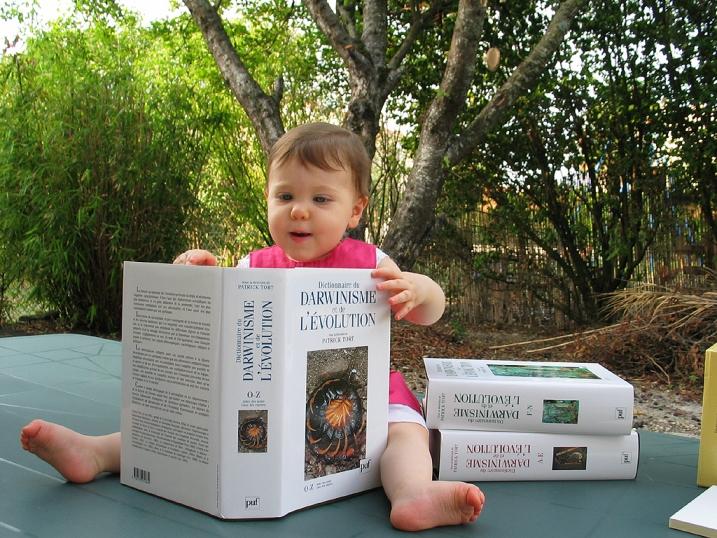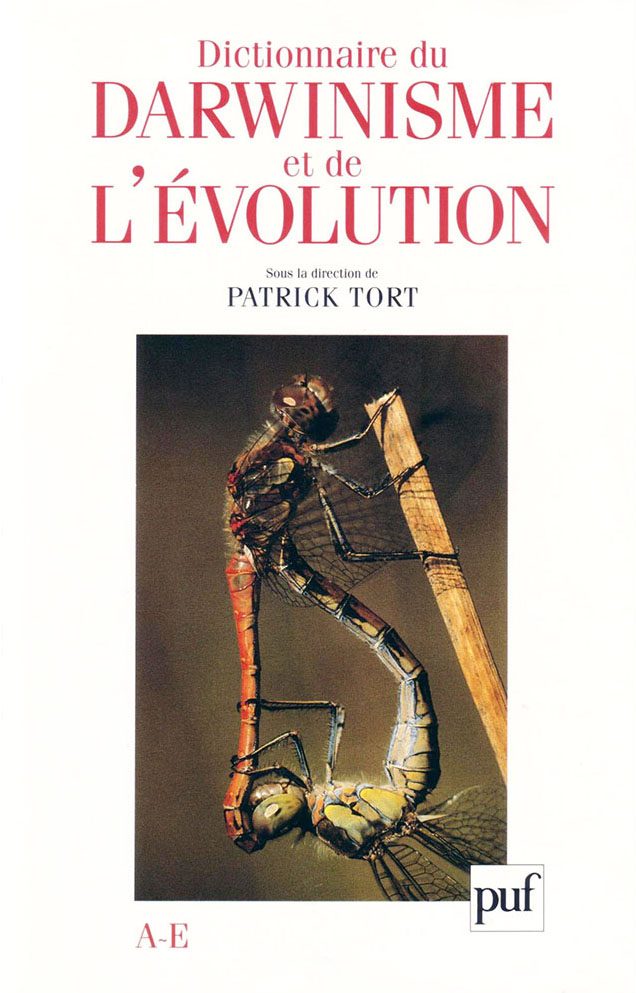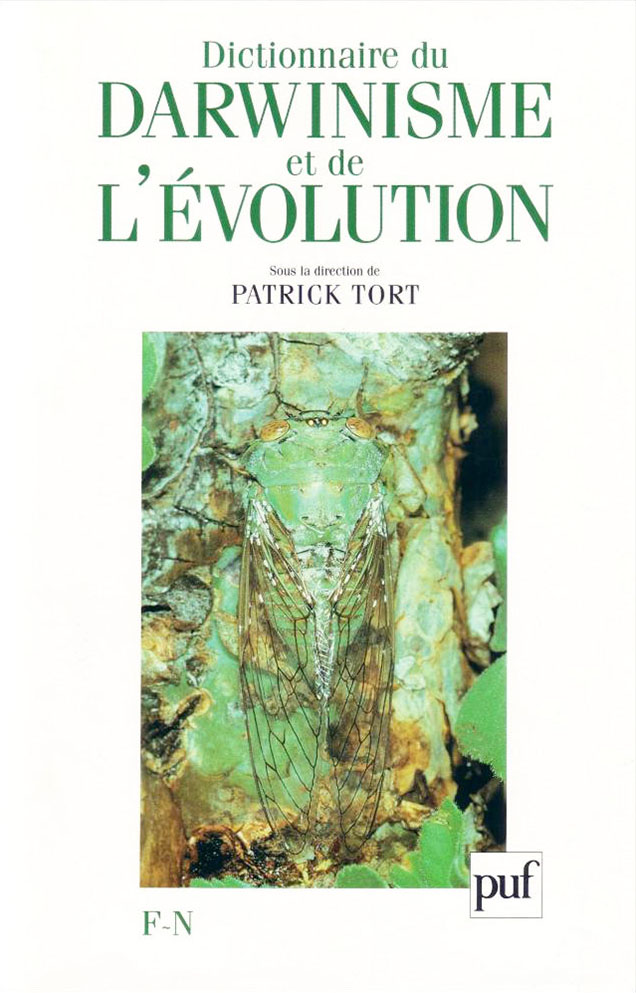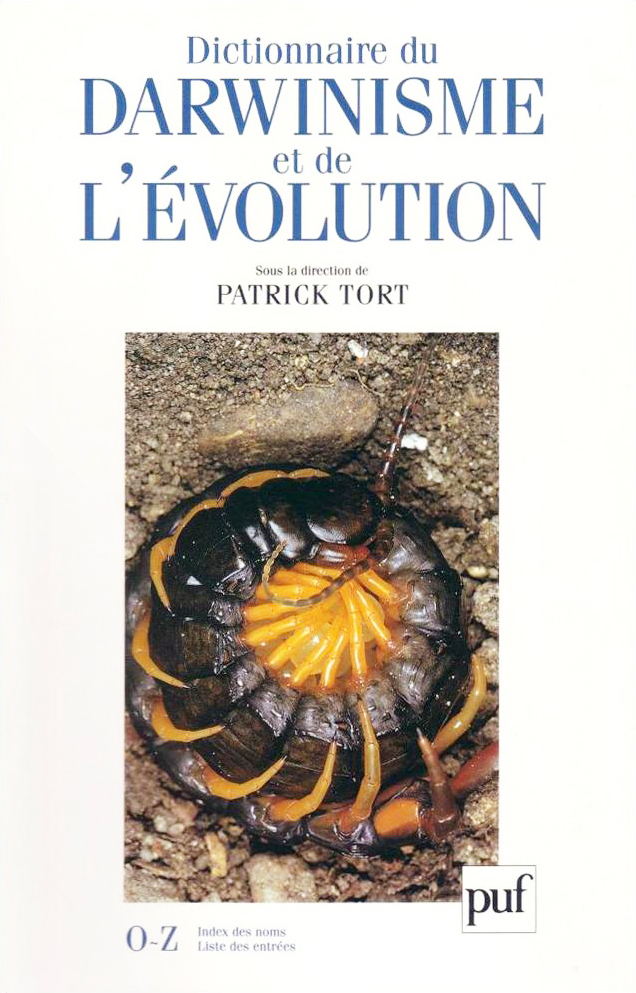

Photo Olivier Biras
To combat the endless distortions of Darwin’s ideas, an international team of 150 specialists in the biological sciences and human studies has, over a period of 10 years, achieved an historical and critical synthesis of Darwinism and evolutionary theory. At last the matter has been clarified: Darwin is not the father of modern anti-equalitarian theories; Darwin is the founder neither of negative eugenics nor of dogmas of the elimination of the weak; Darwin is not the justifier of Victorian imperialism. In short, Darwin is not responsible for “Social Darwinism”.
• Presentation
• The First Encyclopaedic Synthesis in the World
• Scientific Committee
Presentation of the
Dictionary of Darwinism and of Evolution
by Patrick TORT



Darwinian evolutionary theory, one of the fundamental and most influential scientific elaboration of the modern spirit, was also one of the most bitterly contested by its opponents and, at the same time, one of the most constantly betrayed by its followers.
The issues at stake in Darwinism and consequently in the interpretations of Darwin and of the modern theories that derive from his ideas are far-reaching. They go beyond the different branches of natural history and biology which are concerned with the dynamics of evolutive change. Legitimately or not, they involve,de facto, philosophical, sociological, ethical and political aspects of past and present history.
For these very reasons, the distortions inflicted on Darwinian theory by its supporters as well as by its opponents, have long called for a reconstitution of its genesis and development, an accurate reconstruction of its underlying logic, a precise identification of its protagonists, a clearer evaluation of its corpus, a new and complete analysis of its concepts as well as an attentive examination of its repercussions on social sciences.
The authors of the Dictionary of Darwinism and of Evolution, crossing multiple frontiers, have associated their efforts to combat the ideologically inspired notion that Darwin’s theory is out-dated and irrelevant, as well as the repeated misusages of that theory appearing over and over in parasite doctrines.
→ A world premiere
For the first time a comprehensive critical synthesis of the history and actual developments of Darwinism and the theories of evolution is conceived and realized by an international team of specialists in biological and human sciences.
→ A unique and complete analysis of the works and ideas of Charles Darwin
A detailed biography, the intellectual genesis of the theory, the structure of its logic and basic concepts, its reception in various countries, a history of Darwin’s work and scientific approach, the relations with connected doctrines, a complete chrono-bibliography. The Dictionary presents an article about every author quoted by Darwin in his four main theoretical works: The Origin of Species, The Variation of Animals and Plants, The Descent of Man, The Expression of the Emotions.
→ A historical encyclopaedia of the doctrines of evolution
A well informed elucidation of Darwinian theories cannot be without reference to a World Scale History of Darwinism. Each national version of Darwinism (the English-speaking world, Germany, Scandinavia, the Arab countries, France, Spain, Italy, Russia, Cuba and Japan) is the object of in-depth studies and the active source of data and analysis. And for the first time the Dictionary presents a general survey of the development of Darwinism in Russia conceived by Russian scientists.
→ A critical Dictionary of concepts and themes
Aimed at a historical and conceptual clarification of the theories of evolution, the Dictionary combines the definition of concepts and the critical analysis of themes and problematics pertaining to:
• the history of transformism in general;
• the history of the Darwinian theory of natural selection in particular, as well as of adverse theories;
• the history of theories developed with reference to Darwinism in the various sectors of biology and the human and social sciences;
• the history of the influence of these theories on society.
→ A sectorial analysis of the various fields which Darwinism has affected
Geology, palaeontology, zoology, embryology, botany, ecology, molecular biology, genetics, demography, ethology, biological anthropology, social anthropology, criminal anthropology, hygiene, psychology, linguistics, sociology, politics, history, philosophy.
→ A Dictionary of authors
Biographical notices on authors again emphasize the theories related to the emergence, development and modern perspectives on Darwinism presented in the different articles of the Dictionary. The extended chronological bibliographies have been included in order to make up for the extreme dispersion of sources and to meet with the basic needs of historical research.
→ A glossary of instrumental concepts for the biology of evolution
→ A state of contemporary debate on Darwinism